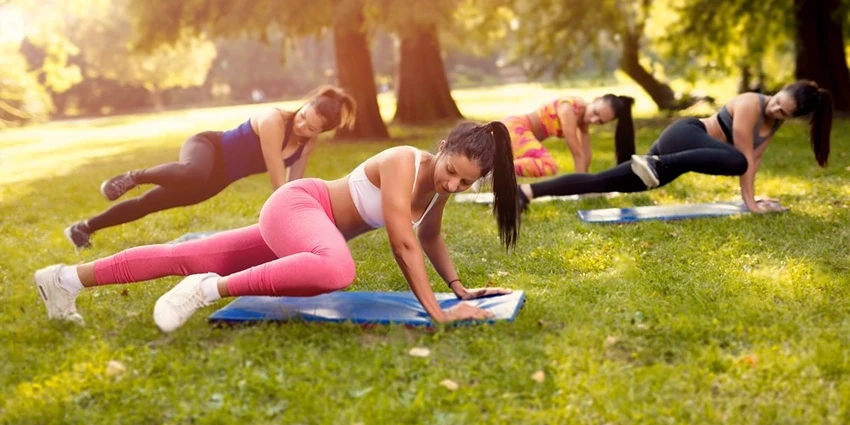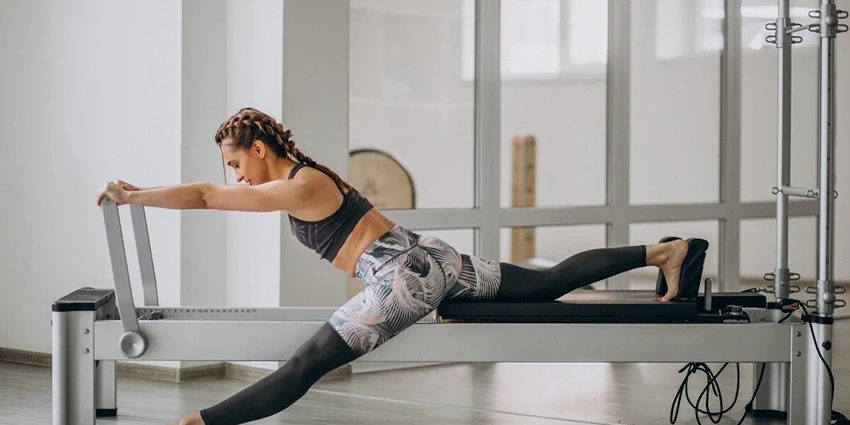At Rac Women, we believe in the power of bodyweight exercises to not only build strength but also to empower women in their fitness journeys. Bodyweight strength exercises are a cornerstone of our philosophy, offering a versatile, effective, and accessible way to enhance physical fitness.
In This Article
The Importance of Bodyweight Training for Women
Bodyweight training goes beyond mere physical development; it’s a form of empowerment. As a woman, mastering the control of your own body can lead to a profound sense of accomplishment and confidence.
Understanding the Basics of Bodyweight Strength
Bodyweight strength training is about using your own body’s weight as resistance against gravity. This form of exercise is not only convenient but also highly effective for developing a balanced physique and enhancing overall health.
Why Rac Women Advocates for Bodyweight Exercises
At Rac Women, we advocate for bodyweight exercises because they can be done anywhere, at any time, without the need for expensive gym memberships or equipment. They are a perfect fit for the busy lifestyles of modern women.
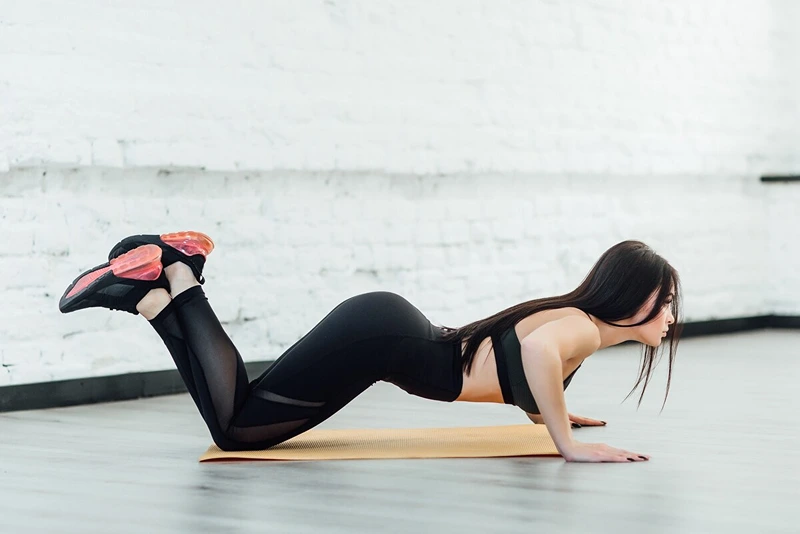
Fundamental Bodyweight Exercises
To start building a solid foundation of strength, there are a few key exercises that we recommend incorporating into your routine.
Squats: The Foundation of Lower Body Strength
Squats are a fundamental exercise that targets the thighs, hips, buttocks, quads, and hamstrings.
| Benefit | Description |
|---|---|
| Muscle Building | Engages multiple muscle groups for overall lower body strength. |
| Core Activation | Requires core engagement for stability. |
| Flexibility | Improves joint flexibility in the hips and knees. |
Push-Ups: Building Upper Body and Core Stability
Push-ups are an all-encompassing exercise that strengthens the chest, shoulders, triceps, and core muscles.
| Benefit | Description |
|---|---|
| Upper Body Strength | Enhances strength in arms, chest, and shoulders. |
| Core Stability | Engages the abdominal muscles for improved posture. |
| Scalability | Can be modified for different fitness levels. |
Lunges: Enhancing Balance and Leg Power
Lunges are excellent for developing leg strength and balance, targeting the quadriceps, glutes, and hamstrings.
| Benefit | Description |
|---|---|
| Balance | Improves stability and coordination. |
| Leg Strength | Builds power in the lower body. |
| Symmetry | Helps correct muscular imbalances. |
Planks: Core Strengthening Essentials
Planks are a core-strengthening powerhouse, engaging multiple muscle groups for overall stability.
| Benefit | Description |
|---|---|
| Core Strength | Builds endurance in all core muscle groups. |
| Lower Back Health | Reduces the risk of back pain. |
| Versatility | Offers various modifications to increase difficulty. |
Advanced Bodyweight Movements
For those who have mastered the basics, advanced movements can provide a new challenge and further enhance strength and conditioning.
Progressing to One-Legged Squats
One-legged squats, or pistols, are a challenging progression from the traditional squat that requires balance, coordination, and leg strength.
Mastering Handstand Push-Ups for Shoulder Strength
Handstand push-ups are an advanced upper body exercise that targets the shoulders, arms, and core.
The Art of the Muscle-Up: A Comprehensive Guide
The muscle-up combines a pull-up and a dip, working the entire upper body and requiring significant strength and technique.
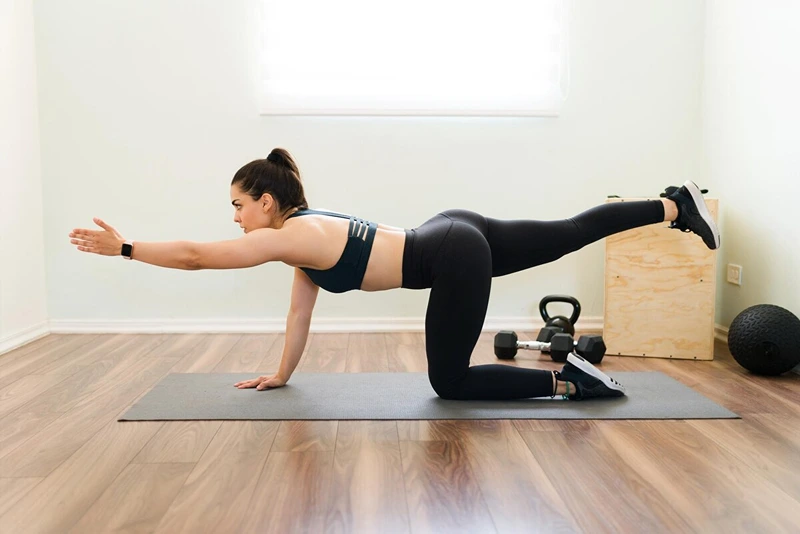
Bodyweight Workout Routines
Creating a routine that incorporates these exercises can help you build strength and endurance effectively.
Creating a Bodyweight Circuit for Beginners
A simple circuit for beginners might include squats, push-ups, lunges, and planks, performed in sequence with minimal rest.
Intermediate Bodyweight Challenges
As you progress, you can increase the number of repetitions, add more challenging variations, or reduce the rest time between exercises.
Advanced Bodyweight Workouts for Strength and Endurance
For advanced individuals, incorporating explosive movements, such as jump squats or plyometric push-ups, can significantly increase the intensity of the workout.
Benefits of Bodyweight Training
Bodyweight exercises offer numerous benefits that extend beyond the visible results.
The Versatility of Bodyweight Workouts
Bodyweight exercises can be modified to suit any fitness level, making them universally accessible.
How Bodyweight Training Complements Other Forms of Exercise
Incorporating bodyweight training into a routine that includes weights, cardio, and flexibility work can create a well-rounded fitness regimen.
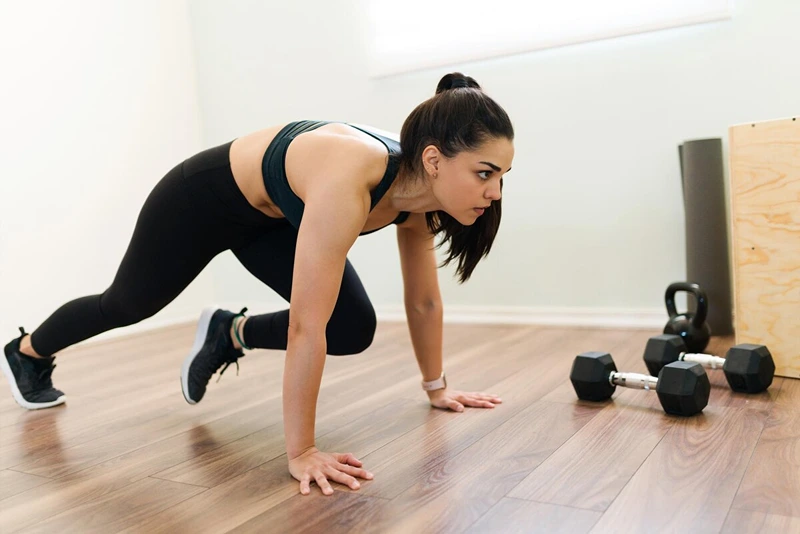
Enhancing Your Bodyweight Training with Rac Women’s Expert Tips
Bodyweight exercises are not just about simplicity; they’re about effectiveness. At Rac Women, we understand the nuances that can turn a basic routine into a powerhouse workout. Here’s how to elevate your bodyweight training to the next level.
Incorporating High-Intensity Interval Training (HIIT)
HIIT can be seamlessly integrated with bodyweight exercises for a fat-blasting workout.
| Interval | Exercise | Duration |
|---|---|---|
| High-Intensity | Burpees | 30 seconds |
| Rest | Light Jogging in Place | 30 seconds |
| High-Intensity | Jump Squats | 30 seconds |
| Rest | Walking Lunges | 30 seconds |
Utilizing Plyometrics for Explosive Power
Plyometrics, or jump training, can significantly improve your power and speed.
| Exercise | Benefits | Recommended Reps |
|---|---|---|
| Box Jumps | Power, Coordination | 10-12 |
| Plyo Push-Ups | Upper Body Strength, Speed | 8-10 |
Isometric Holds for Strength and Stability
Isometric exercises involve holding a position under tension to build strength and endurance.
| Exercise | Hold Time | Benefits |
|---|---|---|
| Wall Sit | 30-60 seconds | Lower Body Endurance |
| Plank Hold | 30-60 seconds | Core Stability |
Bodyweight Exercise Variations for All Levels
Whether you’re a beginner or an advanced athlete, there’s always a way to modify bodyweight exercises to fit your level.
| Exercise | Beginner Modification | Advanced Variation |
|---|---|---|
| Squat | Chair Squat | Pistol Squat |
| Push-Up | Knee Push-Up | Decline Push-Up |
Frequently Asked Questions
- Squats and lunges for lower body
- Push-ups and pull-ups for upper body
- Planks and bridges for core strength
- Start with basic movements
- Gradually increase reps or hold times
- Introduce more challenging variations
- Yes, when performed with enough intensity and volume
- Progressive overload can be achieved by increasing difficulty
- Yes, but it’s important to vary the intensity and target different muscle groups
- Rest is crucial for recovery and muscle growth
- Many exercises require a full range of motion, promoting flexibility
- Balance is improved through core engagement and stability exercises
Push-ups, squats, lunges, planks, and burpees are all effective
- 20-30 minutes for a focused, high-intensity session
- Longer sessions can be beneficial, depending on goals and intensity
- They can complement each other
- Bodyweight exercises are great for when you don’t have access to weights
Ellen Crandall
Meet Ellen, your fitness compass in the world of athletics, training, and gym culture. With a commitment to well-being and a penchant for all things workout-related, Ellen is here to guide you on your journey to a healthier, fitter you. Join the fitness revolution, led by Ellen, and embrace the power of an active lifestyle.


